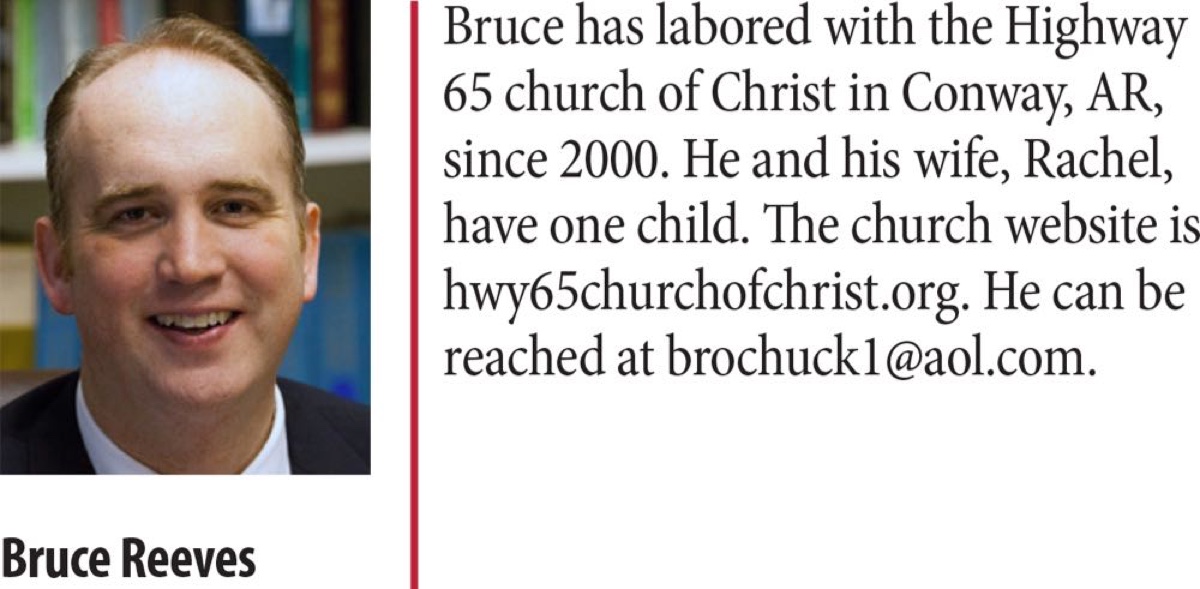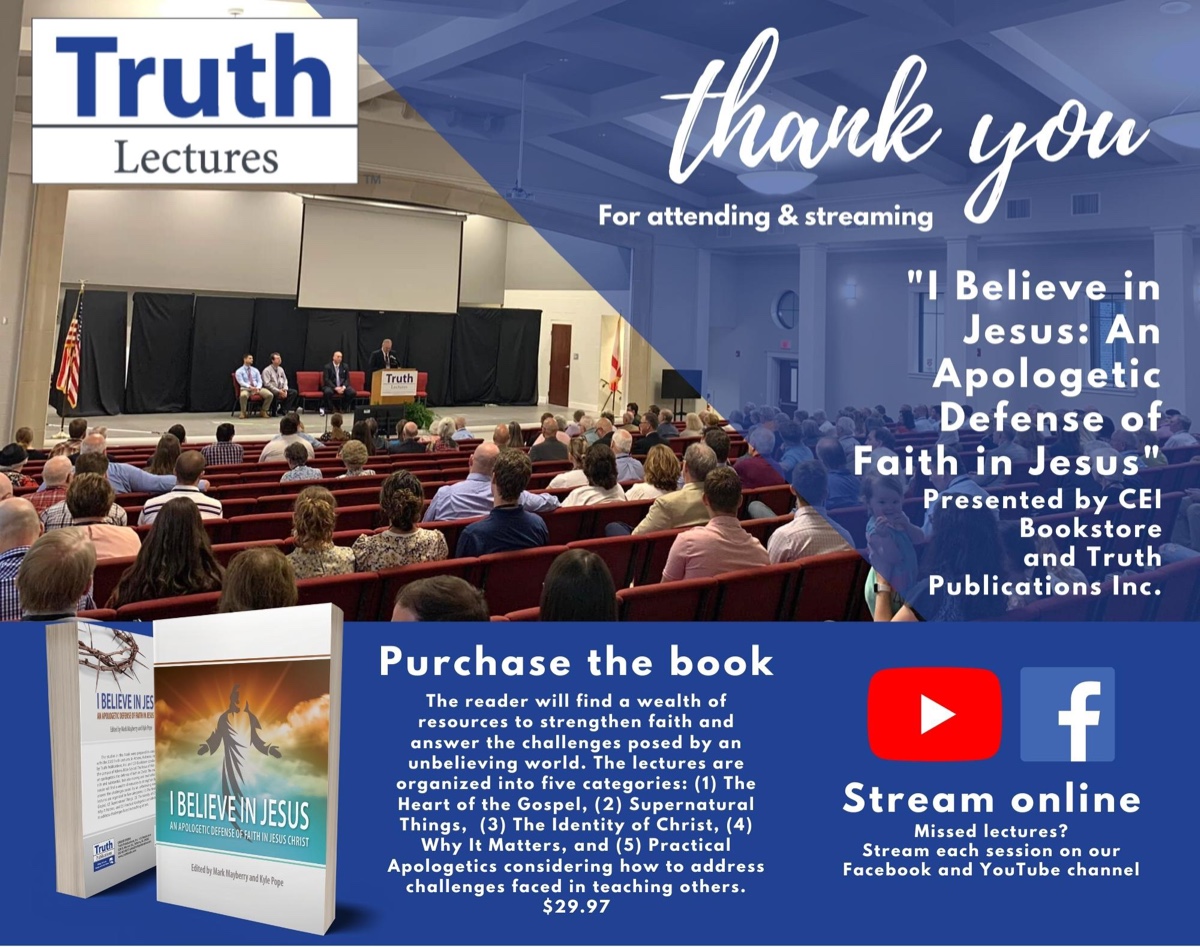By Bruce Reeves
Synopsis: Although the system of Calvinism has some internal consistency, it is entirely at odds with the gospel of Jesus Christ. “Whosoever will may come,” is a wondrous message! In contrast, the doctrine of limited atonement is dark and debilitating.
For many, to ask this question is to answer it. Is not Jesus’s sacrifice for every sinner at the very heart of the gospel? Are we not to proclaim to all the world that Jesus died for their sins? Limited atonement is perhaps one of the most unpopular and controversial tenets of Classic Calvinism. There are even some Calvinists who attempt to accept every point of Reformed Theology except for limited atonement. Yet, most Classic Calvinists counter that Reformed Theology is so tightly structured and interdependent that it is logically impossible to have four of the five points of Calvinism. Once one subscribes to the Calvinistic view of God’s sovereignty, the total inherent inability of man to believe, unconditional election, irresistible grace, and the impossibility of apostasy, there is no room to deny limited atonement.
What Does the Bible Teach?
The Scriptures make it abundantly clear that the majority of mankind will be lost. Jesus says, “Enter through the narrow gate; for the gate is wide and the way is broad that leads to destruction, and there are many who enter through it. For the gate is small and the way is narrow that leads to life, and there are few who find it” (Matt. 7:13-14, ESV). Christ goes on to describe the final judgment for the disobedient, “Many will say to Me on that day, ‘Lord, Lord, did we not prophesy in Your name, and in Your name cast out demons, and in Your name perform many miracles?’ And then I will declare to them, ‘I never knew you; depart from Me, you who practice lawlessness’” (Matt. 7:22-23). The Lord declares the eternal state of those who die in a lost condition: “These will go away to everlasting punishment, but the righteous to eternal life” (Matt. 25:46). Likewise, Paul describes the eternal consequences of rejecting the knowledge of God and His Son when he writes, “They will be punished with everlasting destruction from the presence of the Lord and from the glory of His power” (2 Thess. 1:9). In the Revelation, we read, “Anyone whose name was not found written in the book of life was thrown into the lake of fire” (Rev. 20:15).
Calvinists charge their opponents with the logical conclusions of their own doctrinal presuppositions. If election is unconditional, one must either defend universalism or deny God’s redemptive love for all of humanity. Once one understands that the foundation of Calvinism is false, the truth of the gospel is quite clear: God redemptively loves every person, genuinely and sincerely invites all sinners to come to Him, sent Jesus to die for all, and His divine purpose elects us in Christ, conditioned on our free will choice to obey the Lord (Matt. 11:28-30).
Having established that universalism is false, there must be some sense in which the atonement of Christ is limited, but in what way? The key questions remain, “Is the offer of atonement only available to certain unconditionally chosen people?” or “Is the atoning provision of Christ offered to all, while the reception of atonement’s benefits is limited to those who meet the conditions of the gospel?”
This is precisely why the teachings of total depravity (inability to believe) and unconditional election demand the Calvinistic version of limited atonement. Yet, those who reject these two tenets of Calvinism are free to accept the clear reading of the Scriptures in this regard. If salvation is a free will choice, then those who reject Christ’s sacrifice are responsible for rejecting the application and benefits of the redemption that Christ has sincerely offered. Did God not intend for the sacrifice of Christ to be available and sufficient for every human person?
Behold, the Lamb of God who takes away the sin of the world! (John 1:29).
For God so loved the world, that He gave His only begotten Son, that whoever believes in Him shall not perish but have eternal life (John 3:16).
Calvinists often engage in circular reasoning and self-contradictory argumentation concerning passages like John 3:16. John’s point is not simply that Jesus died for certain Jews and Gentiles, but that He died for the whole world. To argue that Christ died for “whoever believes in Him” while only the unconditionally elected are given the irresistible gift of faith is double talk at best and outright cruel deception at worst. The reason for the condemnation of sinners is both their free will decisions to sin against God, but also their free will choice to remain in unbelief (John 3:18).
For the love of Christ controls us, having concluded this, that one died for all. . . (2 Cor. 5:14).
This is good and acceptable in the sight of God our Savior, who desires all men to be saved and to come to the knowledge of the truth. For there is one God, and one mediator also between God and men, the man Christ Jesus, who gave Himself as a ransom for all, the testimony given at the proper time (1 Tim. 2:3-6).
Calvinists tell us that God desires all to be saved, but that He also unconditionally, unchangeably, and individually elected who would be saved. The doctrine also asserts that God foreordained every sin of humanity, condemns the majority for the sin they could not help but commit, and is the first cause of evil. We are then told that, although (in some sense) He desires the salvation of all, He does not redemptively love all men. Who can believe such twisted thinking? It is true that God desires the salvation of all people, yet few will be saved. The reason is not that they could do no other, but in their freedom of will, the majority reject the Lord.
For the grace of God has appeared, bringing salvation to all men. . . (Titus 2:11).
But we do see Him who was made lower than the angels, namely, Jesus, because of the suffering of death crowned with glory and honor, so that by the grace of God He might taste death for everyone (Heb. 2:9).
How much severer punishment do you think he will deserve who has trampled under foot the Son of God, and has regarded as unclean the blood of the covenant by which he was sanctified, and has insulted the Spirit of grace (Heb. 10:29).
The writer of Hebrews argues that there are those who have been “sanctified” (10:10, 14) by the “blood of the covenant” (13:20), i.e., the sacrifice of Christ—yet have now turned away from faith in Jesus. How does this harmonize with the view of limited atonement? Some seek to evade the explicit teaching of this verse by denying that this was a truly “sanctified” person in the past. However, such efforts are so foreign to the writer’s thought and context that they are obviously forced, and therefore carry their own refutation.
But false prophets also arose among the people, just as there will also be false teachers among you, who will secretly introduce destructive heresies, even denying the Master who bought them. . . (2 Pet. 2:1).
This passage gives Calvinists untold problems as well. If Jesus only died for the elect, how is it that false teachers who are enslaved to corruption and heading for eternal destruction are described as having been “bought” by the Master. Obviously, they had been purged from their old sins, yet had gone back into sin (2 Pet. 1:10-11), thus Jesus died for all (Rom. 5:6-8).
The attempt to redefine the term “bought” to exclude the atonement of Christ is ill-founded and desperate. The NT’s usage of this term refers to those who have in the past been saved (Acts 20:28; 1 Cor. 6:19-20; 7:23; 1 Pet. 1:19; 2:24). This one passage unravels several Calvinistic teachings, such as unconditional election, total inability, limited atonement, irresistible grace, and the impossibility of apostasy.
The Lord is not slow about His promise, as some count slowness, but is patient toward you, not wishing for any to perish but for all to come to repentance (2 Pet. 3:9).
The notion that the phrase “for any” should be translated as “any of the unconditionally elect” is to force one’s preconceived notions into a text of Scripture that neither supports or permits it. If we understand that God desires the salvation of every person but permits freedom of will concerning salvation, then this verse is in complete harmony with the whole of the teaching of God’s word.
And He Himself is the propitiation for our sins; and not for ours only, but also for those of the whole world (1 John 2:2).
This is another verse that gives real difficulty to Calvinistic theologians. The argument that “our sins” refers to Jewish believers and the “whole world” refers to Gentile believers violates the writing of the book altogether (1 John 1:7-9; 2:3; 3:1-2, 14; 4:6; 5:11, 14). John’s use of the “whole world” refers to all those who are outside of Christ and living in sin, whether Jew or Gentile (cf. John 1:9, 10; 3:19; 7:7; 8:23; 9:39; 12:31; 14:19, 22, 27; 14:30; 15:18; 17:16; 1 John 2:2, 15-17; 3:1, 13; 4:4-5; 5:5, 19).
“My little children” (1 John 2:1) refers to Jewish and Gentile Christians. John is encouraging “any” Christian who sins to take comfort in Jesus being his advocate (1 John 2:1). Therefore, Jesus is not only the propitiation for our sins, but for those of the entire world, i.e., Christ’s sacrifice is available to all, but applied only to those who obey the gospel of grace.
So, what would compel someone to re-interpret such passages to make them compatible with the view that Christ died only for the sins of the elect and not for the sins of every human being? The cause is a false doctrine that forces one into contrived eisegesis, rather than biblical exegesis. Calvinists are forced into this position by a theological argument that implies the limited extent of the atonement, which is unbiblical from the very beginning. In his defense of limited atonement, R.C. Sproul admits that his other theological presuppositions serve as the foundation of his teaching, “Once we grasp the doctrine of total depravity, we know that no person will incline himself to faith in the atoning work of Christ. If God does not supply the means of appropriating the atonement’s benefits, namely faith, then the potential redemption of all would result in the actual redemption of none” (What is Reformed Theology, 175). Advocates of this view often commit the logical fallacy of a “False Dilemma.” Sproul writes, “The issue is this: Was God’s purpose to make salvation for all possible, or to make salvation for the elect certain?” (What Is Reformed Theology?, 174). Christ’s sacrifice accomplished both objectives! He made salvation possible for all and secured the certainty of salvation to all those who choose to be faithful to Him. You have to work really hard to evacuate and reject the pointed passages that proclaim the universal availability of the atonement of Christ to all sinners. To deny the genuine offer of God’s grace is to deny the gospel of Christ.
One of the weakest, yet frequently offered arguments for limited atonement is the biblical affirmation that Jesus died for the saved. Obviously, believers are encouraged to recognize the sacrifice the Lord made for their salvation. Yet this does not deny that Jesus’s offering is available to all sinners. Yes, Jesus died “for His sheep,” for “His church,” and for “His friends,” but these statements would be expected if He died for all.
Limited atonement undermines the good news of the gospel for all. If this doctrine were true, never again could it be proclaimed to an audience that Jesus died for each one hearing the good news of the kingdom. The logical consequences of this teaching reveal the dark view that Calvinism has of the nature of God and the scope of His grace. It has been said that “logic is a compelling force in the human heart.” If one can see that Jesus’s sacrifice is available to all but is applied only to those who meet the conditions of surrender to the gospel, then the entire system of Calvinism is debunked and refuted. Thank God for His loving grace! His invitation is not simply an outward, but insincere call. He loves you, His Son died for you, and the Spirit is calling you to the living waters of salvation. John writes, “The Spirit and the bride say, ‘Come.’ And let the one who hears say, ‘Come.’ And let the one who is thirsty come; whoever desires, let him take the water of life without cost” (Rev. 22:17).
Sproul, R.C. What Is Reformed Theology?: Understanding the Basics. Grand Rapids: Baker Books, 2005.




